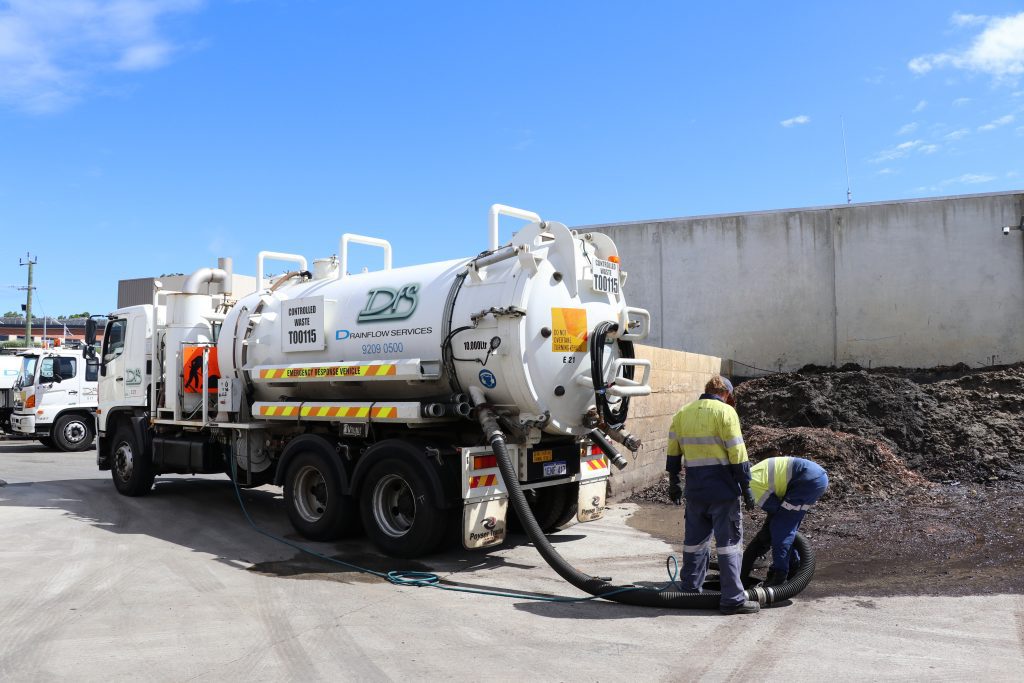The Definitive Guide to Reclaim Waste
Table of ContentsThe Basic Principles Of Reclaim Waste Reclaim Waste - The FactsSome Ideas on Reclaim Waste You Should KnowFacts About Reclaim Waste UncoveredThe Best Strategy To Use For Reclaim Waste
Check out the kinds, incidents, and kinds of liquid waste. Domestic sewage waste refers to the waste and products from a residential septic container. This kind of waste is developed by humans in residences, colleges, and other structures. This only includes sewage-disposal tanks that have a drainpipe field. The proper monitoring and disposal of domestic sewage waste call for liquid waste to be transferred to a sewage therapy plant where the appropriate approaches and equipment are related to cleanse and dispose of waste.
Industrial waste typically consists of potential threats, such as flammable products or a mixture of fluid and strong waste items, and calls for an extra advanced and thorough disposal process. The disposal of commercial waste generally entails the filtration of waste prior to transport to ensure safe and proper disposal. Hazardous waste is produced from results and runoff of commercial procedures and production.
This kind of waste can not utilize the very same sewage administration transport or processes as septic or commercial liquids. The industrial waste management process calls for the examination and screening of fluid waste before it goes through the disposal process (liquid waste disposal). Overflow waste is the liquid waste that comes from overflow and excess stormwater in highly inhabited areas or cities
Drainage waste can create contamination and flooding if not managed appropriately. Ensuring appropriate waste monitoring can protect against catastrophes and decrease environmental damage.
The Ultimate Guide To Reclaim Waste
Get in touch with PROS Solutions today to discover our waste monitoring and disposal solutions and the proper means to take care of the fluid waste you generate.
(https://www.pageorama.com/?p=reclaimwaste1)Do you recognize what happens to your water when you disengage, purge the bathroom or drain the cleaning equipment? No? Well, it deserves understanding. This so-called 'wastewater' is not just an essential source however, after treatment, will certainly be launched to our land, waterways or the sea. Made use of water from commodes, showers, bathrooms, kitchen area sinks, washings and industrial procedures is called wastewater.

water used to cool equipment or tidy plant and devices). Stormwater, a type of wastewater, is runoff that moves from farming and metropolitan areas such as roofings, parks, yards, roads, courses and gutters into stormwater drains pipes, after rain. Stormwater flows untreated directly to local creeks or rivers, ultimately reaching the sea.
Reclaim Waste Can Be Fun For Anyone
In Queensland, most wastewater is dealt with at sewer treatment plants. Wastewater is carried from residential or industrial sites through a system of drains and pump stations, understood as sewerage reticulation, to a sewage treatment plant. Local federal governments liquid waste removal melbourne develop, preserve and operate most sewer therapy plants. Operators are accredited under the Environmental Management Act 1994 to release cured wastewater at an acceptable ecological criterion right into waterways.
The Division of Natural Resources suggests regional federal governments regarding handling, operating and maintaining sewerage systems and therapy plants. In unsewered areas, city governments might require owners to set up private or home sewage therapy systems to deal with residential wastewater from commodes, kitchen areas, restrooms and laundries. The Department of Natural Resources authorises using home systems when they are confirmed to be efficient.
Most stormwater gets no therapy. In some brand-new communities, therapy of some stormwater to eliminate clutter, sand and gravel has actually started making use of gross pollutant catches. Wastewater treatment occurs in four phases: Removes strong issue. Larger solids, such as plastics and other things wrongly discharged to sewers, are eliminated when wastewater is gone through displays.
Wastewater then streams right into large tanks where solids clear up and are removed as sludge. Grease and residue are skimmed from the surface area. Makes use of small living organisms knows as micro-organisms to damage down and eliminate continuing to be dissolved wastes and fine particles. Micro-organisms and wastes are included in the sludge. Eliminates nitrogen and phosphorus nutrients that can cause algal flowers in our waterways and endanger aquatic life.
See This Report on Reclaim Waste
Nutrient elimination is not readily available whatsoever sewer therapy plants because it calls for expensive specialised equipment. It is ending up being extra usual in Queensland. Clear liquid effluent generated after treatment may still consist of disease-causing micro-organisms. If this effluent is launched into waterways such as rivers or the sea, the micro-organisms will ultimately die out.

A lot of wastewater flows right into the sewerage system. Under the Act, local federal governments provide authorizations and licences for eco relevant activities (ERAs) entailing wastewater releases that could have a local impact.
The Greatest Guide To Reclaim Waste
Monitoring offers factual info regarding water top quality and can confirm that permit problems are being satisfied. The info obtained with surveillance gives the basis for making water top quality decisions.